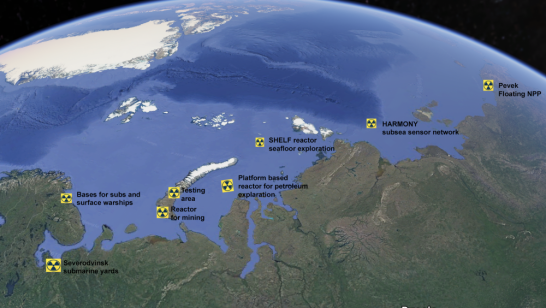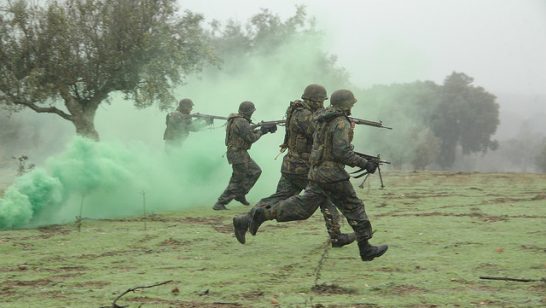Leading up to and following the 2016 NATO Summit in Warsaw the European Leadership Network commissioned several expert commentaries on the most pressing issues facing NATO and its partners. Below are the most recent additions to this series, encompassing highly qualified analysis from ELN members from across Europe.
NATO-Russia Post-Warsaw Summit: Towards A Conversation that Matters?
Isabelle Francois examines the forms of dialogue available to NATO and Russia following the Warsaw Summit.
NATO Eager to Stabilize the Euro-Atlantic Area
ELN Research Director, Lukasz Kulesa, discusses the results of NATO summit in Warsaw with the Russian International Affairs Council.
After the Warsaw Summit: What Is NATO Ready For?
Olivier de France argues that NATO should now try to build a more realistic understanding of readiness, which more reliably covers what it means to be ready to use force to reach a calculated, positive impact.
After the Summit, will the Russian bear roar or whimper?
Lukasz Kulesa writes that both NATO and Russia must be careful not to misinterpret each other’s actions following the NATO Summit in Warsaw, with any miscalculation based on perceived aggression or weakness set to worsen the confrontation.
‘Nobody’s lake’: Securing the Black Sea
Denitsa Raynova argues that NATO’s response to Russian actions in the Black Sea must balance responsiveness to the concerns of regional allies with proportionality and restraint.
Cleared for Takeoff: Dangerous Brinkmanship and the Case for the Cooperative Airspace Initiative
Thomas Frear argues that a reappraisal of the NATO-Russia Cooperative Airspace Initiative is necessary to safeguard the safety of civilian airliners caught in the midst of the ongoing confrontation.
NATO’s Nuclear Future: Deter, Reassure, Engage?
A new report, “NATO’s Nuclear Future: Deter, Reassure, Engage?”, prepared by the Nuclear Threat Initiative (NTI) and co-authored by ELN Senior Associate Fellow Simon Lunn, argues that NATO must adopt a balanced approach that includes the proper mix of deterrence, reassurance, and engagement with Russia.
Competing Demands: Prioritisation is crucial for the success of the Warsaw NATO Summit
John McColl, former NATO Deputy SACEUR, argues that prioritising NATO’s multiplicity of threats, including from Russia and the Middle East, as well as managing the commitment to Afghanistan, will be the biggest challenge of the 2016 Warsaw Summit.
Three crucial decisions for the Warsaw Summit
Ahead of the Warsaw Summit Klaus Naumann, former Chief of Staff of the Bundeswehr, outlines three measures to strengthen NATO cohesion and revitalise the alliance to face modern threats. These measures include the re-adoption of a dual deterrence and dialogue approach with Russia; a renewed focus on the Southern flank, and a renewed commitment to Article 4 of the Atlantic Treaty.
NATO’s Warsaw Summit: confronting the challenge of uncertainty
Former senior UK MOD official, Tom McKane, outlines four priorities for NATO’s upcoming summit: fulfilling pledges from Wales; strengthening presence in Eastern Europe; restating role of nuclear deterrence and outlining a role in protecting against terrorism.
Georgia and NATO: Perpetual Threshold
While officially Tbilisi continues to insist that it be granted a Membership Action Plan in Warsaw, Tedo Japaridze, Georgian Member of Parliament and Chairman of the Foreign Relations Committee, argues in the first of this ELN commentary series that this is not a realistic proposition. Instead Japaridze makes the case that existing and planned Georgia-NATO cooperative activities remain a net contributor to national and regional security until such time as full membership becomes a real possibility.
Unity of the West at stake in Warsaw
Stefano Stefanini argues that unless NATO provides security to all allies, inclusive of those facing threats from the Mediterranean and Middle East, the alliance risks irrelevance. This must be a major theme of the Warsaw Summit.
Planning for Warsaw, waiting for the next US President
Former French Defence Minister Paul Quilès argues that while a momentous policy shift is not possible until a new American President is elected, NATO can and must make some important changes in Warsaw, including holding both sides to account through the Minsk framework in Ukraine.
The opinions articulated above represent the views of the author(s), and do not necessarily reflect the position of the European Leadership Network or any of its members. The ELN’s aim is to encourage debates that will help develop Europe’s capacity to address the pressing foreign, defence, and security policy challenges of our time.



